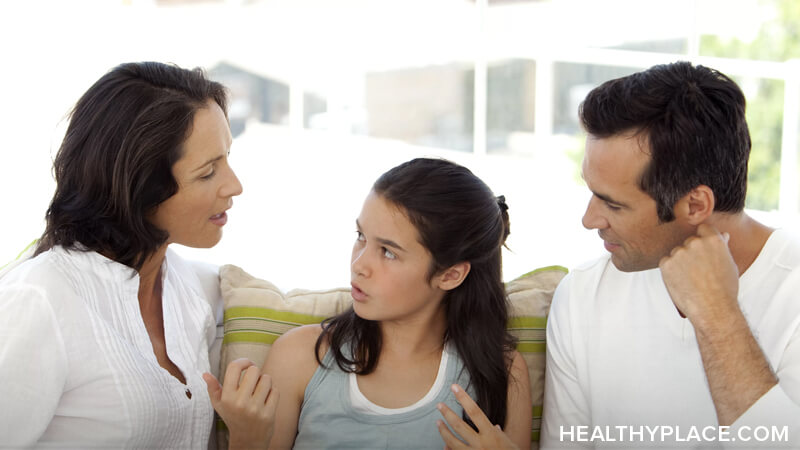How to Help Your Kids with Anxiety During COVID-19

So much is uncertain and anxiety-provoking right now, but one thing is certain: kids experience anxiety during this COVID-19 pandemic, too. Not knowing how to help your kids with anxiety can be frustrating, and right now, when you might be dealing with anxiety of your own about the ever-changing COVID-19 scare, wondering how to deal with anxious kids can be challenging. Happily, there are ways you can help your kids deal with their anxiety and increase the mental health and wellbeing of everyone in your household in the process. Here are some insights from my own experience as a parent and former high school teacher and counselor. I can help you help your kids who have anxiety from COVID-19.
To Help Your Kids with Anxiety During COVID-19, Look Behind It
If you're a parent facing kids or teens who are out-of-sorts and anxious due to COVID-19, adjustment difficulties and lack of a sense of control are likely two of the driving forces behind their coronavirus anxiety.
For all of us--and especially kids and teens--anxiety goes hand and hand with adjustment struggles. Change is hard, and kids don't have the life experience or the developed thinking styles to smoothly and easily deal with it. This is why transitions are difficult for many kids, sometimes leading to loud resistance and tantrums, other times leading to pouting or whining or, for middle- and high school kids, moodiness and backtalk.
Unfortunately, right now change and transitions abound. In my state, the Department of Education mandated that all teachers only provide review material in their remote delivery, and my son's calculus teacher emailed everyone to tell them what this would be like for the class. Within hours of that message, the state changed its directive and the information from the teacher was obsolete. For kids who are prone to anxiety and have difficulties adjusting to changes, things like this are highly problematic.
Things like this are also out of everyone's control. A lack of control is another big factor underlying anxiety at any time. Now, there are fewer and fewer things in our control, whether we're kids, parents, teachers, or anyone else. Even young children need to feel some control over their day in order to feel confident (read: less anxious) in themselves and their world. Adolescents, as any parent knows, balk when they lack control.
The following tips can help you and your child or teenager adjust to constant change, feel some control, and thus reduce anxiety.
How to Help Your Kids with Anxiety Amidst COVID-19
Helping your kids with anxiety during COVID-19 is difficult because so many things are out of your control. But one thing that is within your realm of control is how you interact with your kids and the structure you provide in your home. These are general guidelines; feel free to personalize them to create a system that works for your unique family and individuals in your family.
- Establish consistent routines and schedules. This will help kids adjust to their new "school" setting and all the other changes they are facing. It's important to give older kids a say in their schedule. Let them create a routine for their new normal and help them stick to it. The key is to have a routine that provides consistency and structure.
- Be flexible. Maintain your normal expectations and adhere to your established routines as much as possible, but do allow for flexibility. Help kids feel in control by allowing them to mix things up as they need to.
- Be intentional about fun and lightheartedness. When making your routines, schedule fun time on purpose and allow room for spontaneous fun. Kids process anxiety and stress through play, so provide plenty of opportunities for that every day.
- Remain centered, balanced, and positive when talking about COVID-19 and its effects on your kids' anxiety. It's tempting to share everything with your kids to help them be informed, and it's also tempting to hide everything from them to protect them. Both extremes cause high anxiety in kids of all ages (and in adults, too). Know your kids, both their ages and personalities, and tailor what you tell them accordingly. When you talk to them, discuss positives as well as negatives, and involve them in problem-solving. This builds mental health and resilience so they can reduce anxiety now and in their future.
In providing structure and flexibility, you are helping your kids feel centered and in control, which results in less anxiety for kids during the COVID-19 crisis. This, coupled with being intentional about how you talk to them, conveys the message that you trust their ability to get through this in a positive, healthy way. That belief in your kids fosters their own self-confidence and self-efficacy and is one of the most effective ways to help them with anxiety now and through their lives.
How are you helping your anxious kids through the COVID-19 stress? Share your thoughts in the comments.
APA Reference
Peterson, T.
(2020, April 2). How to Help Your Kids with Anxiety During COVID-19, HealthyPlace. Retrieved
on 2025, December 5 from https://www.healthyplace.com/blogs/anxiety-schmanxiety/2020/4/how-to-help-your-kids-with-anxiety-during-covid-19